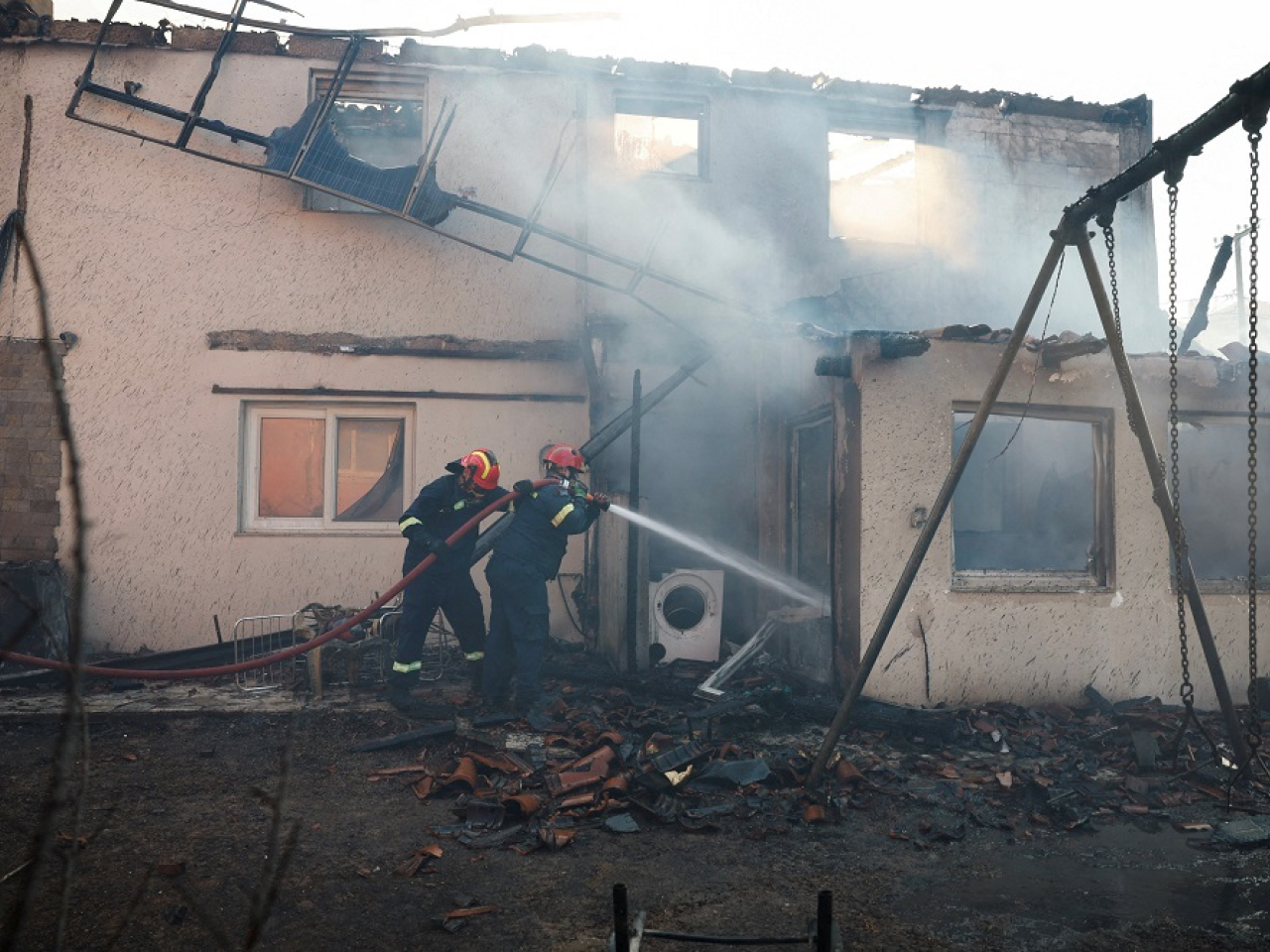Greece battled wildfires that have ravaged homes and sparked evacuations for a second day on Sunday, with the help of Czech firefighters and Italian aircraft expected to arrive later.
Five fires were still raging in the Peloponnese area west of the capital, as well as on the islands of Evia, Kythera and Crete, with aircraft and helicopters resuming their work in several parts of the country at dawn.
"Today is expected to be a difficult day with a very high risk of fire, almost throughout the territory," fire brigade spokesman Vassilis Vathrakogiannis said on Sunday, though he added that the situation was improving.
Forecasters predicted the strong winds that have fanned the flames would die down on Sunday in most areas but warned that Kythera, an popular tourist island with 3,600 inhabitants, continued to face "worrying" windy conditions.
Evacuation messages were sent to people on the island, which lies off the south-eastern tip of the Peloponnese, early on Sunday as the fire raged unabated.
"Houses, beehives, olive trees have been burnt," Giorgos Komninos, deputy mayor of Kythera, told state-run ERT News channel.
"A monastery is in direct danger right now," he said, adding that half of the island had been burnt.
Dozens of firefighters supported by three helicopters and two aircraft were battling the Kythera blaze, which erupted Saturday morning and forced the evacuation of a popular tourist beach.
Greece had earlier requested help from EU allies and two Italian aircraft were expected Sunday, according to the fire brigade, with units from the Czech Republic already at work.
Eleven regions of Greece still face a very high fire risk, according to officials.
Firefighters are working in several areas of the Peloponnese and there were numerous flare-ups overnight on the island of Evia, near Athens, where the flames have laid waste to swathes of forest and killed thousands of farm animals. (AFP)





